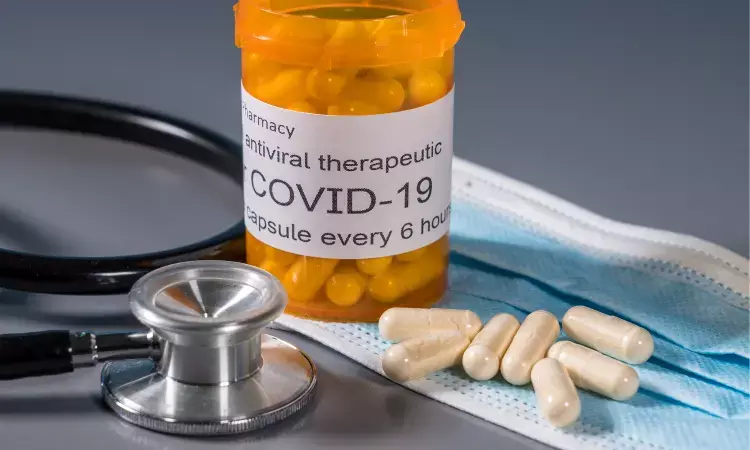- Home
- Medical news & Guidelines
- Anesthesiology
- Cardiology and CTVS
- Critical Care
- Dentistry
- Dermatology
- Diabetes and Endocrinology
- ENT
- Gastroenterology
- Medicine
- Nephrology
- Neurology
- Obstretics-Gynaecology
- Oncology
- Ophthalmology
- Orthopaedics
- Pediatrics-Neonatology
- Psychiatry
- Pulmonology
- Radiology
- Surgery
- Urology
- Laboratory Medicine
- Diet
- Nursing
- Paramedical
- Physiotherapy
- Health news
- Fact Check
- Bone Health Fact Check
- Brain Health Fact Check
- Cancer Related Fact Check
- Child Care Fact Check
- Dental and oral health fact check
- Diabetes and metabolic health fact check
- Diet and Nutrition Fact Check
- Eye and ENT Care Fact Check
- Fitness fact check
- Gut health fact check
- Heart health fact check
- Kidney health fact check
- Medical education fact check
- Men's health fact check
- Respiratory fact check
- Skin and hair care fact check
- Vaccine and Immunization fact check
- Women's health fact check
- AYUSH
- State News
- Andaman and Nicobar Islands
- Andhra Pradesh
- Arunachal Pradesh
- Assam
- Bihar
- Chandigarh
- Chattisgarh
- Dadra and Nagar Haveli
- Daman and Diu
- Delhi
- Goa
- Gujarat
- Haryana
- Himachal Pradesh
- Jammu & Kashmir
- Jharkhand
- Karnataka
- Kerala
- Ladakh
- Lakshadweep
- Madhya Pradesh
- Maharashtra
- Manipur
- Meghalaya
- Mizoram
- Nagaland
- Odisha
- Puducherry
- Punjab
- Rajasthan
- Sikkim
- Tamil Nadu
- Telangana
- Tripura
- Uttar Pradesh
- Uttrakhand
- West Bengal
- Medical Education
- Industry
Estrogen treatment associated with reduced COVID deaths

A new paper in Family Practice, published by Oxford University Press, indicates that receiving hormone replacement therapy within six months of a recorded diagnosis of COVID-19 was associated with a reduction in mortality from the disease.
The novel severe acute respiratory syndrome coronavirus 2 (SARS-CoV-2) continues to spread. Men and women are equally susceptible to the infection. Men tend to have more severe infections, however, and have higher rates of hospitalization and mortality. A recent review of sex differences in COVID-19, using data from 38 countries, found mortality in men was 1.7 times higher than in women. Younger women or those with higher estrogen levels are less likely to experience COVID-19 complications.
Earlier studies have also shown that women have faster and greater immune responses to viral infections. Researchers have observed similar data in previous pandemics, including the SARS-CoV (Severe Acute Respiratory Syndrome Corona Virus) and MERS-CoV (Middle East Respiratory Syndrome Corona Virus) outbreaks.
The reason for these sex differences is uncertain. Limited recent observational data suggest that estrogen may reduce the severity of COVID-19 disease. This study investigated the association between hormone replacement therapy or combined oral contraception use, and the likelihood of death in women with COVID-19. Researchers investigated combined oral contraception, which contains estrogen, because some Recent observational data suggests that women taking oral contraceptives have a lower risk of acquiring COVID-19.
Investigators used a retrospective cohort with medical records from the Oxford-Royal College of General Practitioners Research and Surveillance Centre primary care database. They identified a group of 1,863,478 women over 18 from 465 general practices in England. There were 5451 COVID-19 cases within the cohort. Hormone replacement therapy was associated with a 78% reduction in all-cause mortality in COVID-19.
This suggests that estrogen may well contribute a protective effect against COVID-19 severity. This may explain why fewer women compared to men have been hospitalized, admitted to intensive care, or died due to COVID-19 during the pandemic.
"This study supports the theory that estrogen may offer some protection against severe COVID-19," said Christopher Wilcox, one of the paper's authors. "We hope that this study can provide reassurance to patients and clinicians that there is no indication to stop hormone replacement therapy because of the pandemic."
To read the full article, click on the following link:
http://dx.doi.org/10.1093/fampra/cmac041
Dr Kamal Kant Kohli-MBBS, DTCD- a chest specialist with more than 30 years of practice and a flair for writing clinical articles, Dr Kamal Kant Kohli joined Medical Dialogues as a Chief Editor of Medical News. Besides writing articles, as an editor, he proofreads and verifies all the medical content published on Medical Dialogues including those coming from journals, studies,medical conferences,guidelines etc. Email: drkohli@medicaldialogues.in. Contact no. 011-43720751


